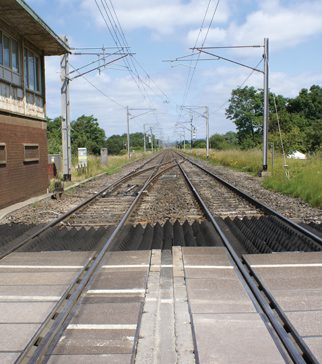As the railways were among the nationalised industries in the 1960s, their files are kept at the National Archives, including one, AN 111/478, about crime on Britain’s railways.
A memo in November 1966 went into cost of claims for lost or stolen freight traffic, such as parcels. Claims were paid out running at about £2,250,000 a year; a ten per cent rise on 1965. Particularly vulnerable (to theft) were tobacco and alcohol. The memo also put a figure on the costs of processing claims, estimated at £544,000 a year; and policing costs were put at £1.75m. The total outgoings: £4.54m.
The loss of customer goodwill, and business going elsewhere, was ‘not easily quantified’, but, the memo went on, ‘is certainly significant and there is no doubt that unsatisfactory claims expense has been a factor in the decline of traffic over recent years’; and, higher premiums from insurance companies.
The memo described stealing as ‘a rising national problem’, not confined to goods in rail transit. Some 80 per cent of claims were for sundries and parcels; not only due to crime (including organised crime) but due to handling or rough shunting. British Rail brought in PA management consultants. As a result, each BR region had several claims prevention officers.
In July 1966, Eric Merrill, BR’s chief public relations officer, wrote internally about the rewards for recovery of stolen property. He gave a recent example of a lorry of tobacco, stolen in the Paddington area. “Thefts of this kind invariably reach the ears of newspapers quickly so there should be little difficulty in giving details of rewards to the press providing a quick decision is made ….”
This was part of wider official work to prevent crime. The Home Office wrote to British Rail in October 1965, ahead of the Home Secretary launching a crime prevention campaign, ‘which will draw attention to the record volume of serious crime – there were more than a million indictable crimes last year – and by the use of television advertising, press advertising, posters, leaflets etc will invite the citizen to cooperate in various ways. The publicity will drive home the fact that much of this crime need not have happened if the public had adopted various elementary precautions’, such as house breaking, and thefts from cars, when valuables were left on view. The campaign theme was ‘don’t invite crime’. The Home Office invited British Rail to an informal meeting that month about the campaign material.
Merrill replied that he would like to attend, although a hand-written note from someone else told him that the campaign was very much aimed at the individual. Merrill was interested because, as he told the Home Office, ‘we have a considerable problem of crime prevention on railways that a railway element could well be introduced into some of the local crime prevention exhibitions’ that the Home Office was proposing.
In April 1965, Merrill had written to the British Transport Police chief constable, WO Gay, giving the public relations view of crime on the railways. The best publicity we could have, he wrote, was the deterrent of reports of prosecutions and the penalties imposed. Likewise, in cases of damage and trespass; BR was already giving talks and films in schools.
As for the theft of passenger luggage, the Ministry of Transport was disinclined to do anything: “I had hoped they would include all forms of transport in publicity designed to bring home to passengers the dangers of leaving luggage unattended. My own view is that we should have notices, posters and loudspeaker announcements. Coupled with that we should have more effective advertising and signposting directing attention to cloakrooms and lockers as well as loudspeaker notifications about these facilities. I agree with you that we have in this respect a duty to the public.’
As for theft of merchandise, Merrill significantly admitted a need to avoid publicity of bad things happening on the railways: “I do not think there is much we can do without blackening BR’s character with possible unfortunate commercial repercussions. Once again I am in agreement with you that publicity about this should emphasise the steps we are taking to safeguard materials entrusted by customers to our care.”
And Merrill was against publicising the British Transport Police’s annual report; ‘it presents a totality of fact which can be highly damaging to the railways’ commercial efforts’. Far better, Merrill said, ‘to attack the various sectors of crime separately’.









